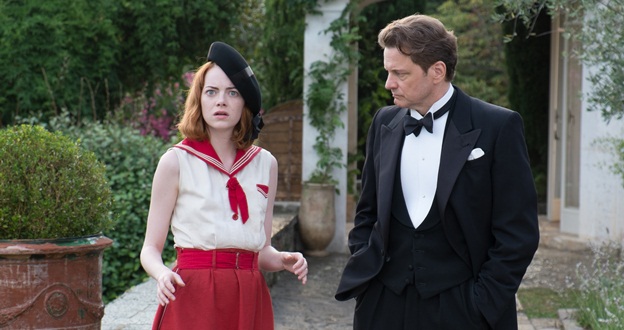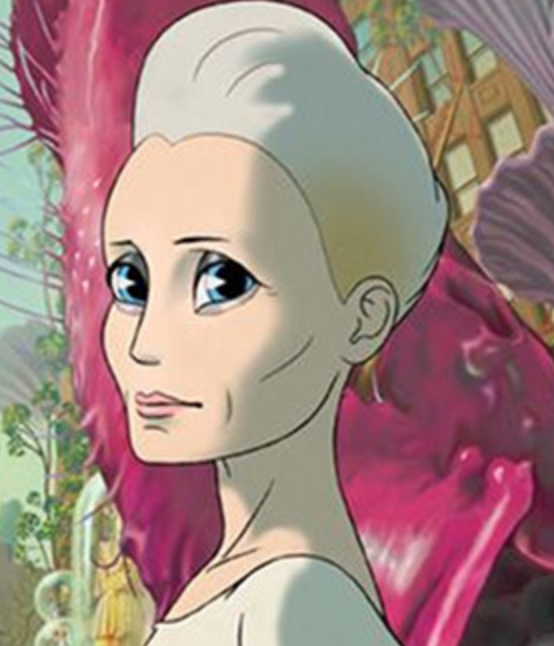 The following review originally appeared in Word and Film.
The following review originally appeared in Word and Film.
Let’s get one thing straight: Michel Gondry directed the best movie of the last decade. Fantastically original and unsentimentally tender-footed, Eternal Sunshine of the Spotless Mind will likely go down in history as one of the greatest romances ever to grace the silver screen. Of course, some of its brilliance can be chalked up to screenwriter Charlie Kaufman. But unlike the Kaufman scripts directed by other filmmakers (including Kaufman himself), Sunshine boasts a heart rather than a navel – and its long-faced, metaphysical interrogation of the plausibility of long-term love is uplifted by a ramshackle, lo-fi sci-fi aesthetic that’s pure Gondry.
But – and we knew there had to be a “but” after a set-up like that, right? – the French director’s work has proven an uneven lot since then. Be Kind Rewind, his 2008 paean to video stores and working-class neighborhoods starring Yasiin “Mos Def” Bey and Jack Black, is a minor delight that’s most noteworthy for its introduction of “Sweding,” a remaking of something with any available materials. And The We and the I, Gondry’s 2011 experimental drama about New York City teenagers that evolved from workshops with real NYC teenagers in an afterschool arts program, makes admirable use of his sympathetic fancies. But 2006’s The Science of Sleep, about a man enthralled by his own unconscious, is about as appealing as listening to someone else describe their dream for two hours, and Gondry’s documentaries The Thorn in the Heart and Is the Man Who Is Tall Happy? suffer from the very navel-gazing that he sidestepped in Sunshine. Block Party, his 2005 doc mixing Dave Chappelle’s comedy with 1990s hip hop interludes, may be pure pleasure but it is also pure Chappelle. The truth is our French friend’s high-octane whimsy is more effective when he’s working from someone else’s material.
So Mood Indigo, Gondry’s latest, seemed a no-brainer. Adapted from Boris Vian’s feverishly creative eponymous 1947 novel, it stars Romain Duris and Audrey Tautou, the reigning king and queen of Pretty French Quirk, as newlyweds who live in a wonderland of their own devise until he is bankrupted by her mortal illness. It’s a perfect match of actors, material, and director – or at least one would think. Alas, the match is too perfect. It’s so much of a piece that the result is whimsy layered upon whimsy upon whimsy. With a little whimsy thrown in for good measure. Vian’s bio reads like a real-life version of Gondry’s characters, or, for that matter, one of his own: a novelist, poet, jazz trumpeter, singer, critic, engineer, critic, and inventor, he died of cardiac arrest at age thirty-nine while watching a Hollywood adaptation of his novel entitled (wait for it) I Spit on Your Graves. Forget about Death by Chocolate. This is, at the risk of sounding terribly flippant, Death by Whimsy. Which, equally flippantly, could also be the name of this film. Continue Reading →
 Though not terrible by any stretch of the imagination, Magic in the Moonlight is one of Woody Allen’s slightest efforts in quite a while. Its central star is the French countryside where it is based, with a distant second played by Colin Firth as an ill-tempered illusionist and Emma Stone as a medium who bewitches him with her bright blue gaze and seemingly legitimate psychic abilities. The dance between a depressive rationalism and magical thinking is a familiar Allen trope, and he brings nothing new to it here. What fun there is to be found stems from Firth sinking his fangs into another Mr. Darcy-like role as well as an unusually demure Stone; early reviews have largely amounted to the critical equivalent of a suppressed yawn.
Though not terrible by any stretch of the imagination, Magic in the Moonlight is one of Woody Allen’s slightest efforts in quite a while. Its central star is the French countryside where it is based, with a distant second played by Colin Firth as an ill-tempered illusionist and Emma Stone as a medium who bewitches him with her bright blue gaze and seemingly legitimate psychic abilities. The dance between a depressive rationalism and magical thinking is a familiar Allen trope, and he brings nothing new to it here. What fun there is to be found stems from Firth sinking his fangs into another Mr. Darcy-like role as well as an unusually demure Stone; early reviews have largely amounted to the critical equivalent of a suppressed yawn.

